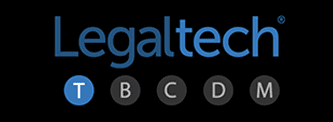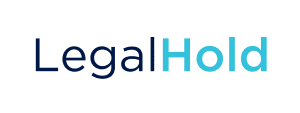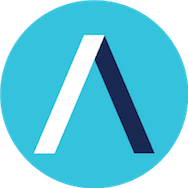LegalTech New York 2019 was a fascinating conference, exhibiting trends and movements in legal technology that are shaping the entire legal industry. We asked our own Steven O’Donnell about what he experienced at this year’s event.
What were some of your general observations from LegalTech New York 2019?

That the Legal Rising movement continues to grow towards its tipping point. There’s a real desire among both in-house legal and law firms to understand how technology and processes can drive efficiency and collaboration across the organization and improve business outcomes. This was the fifth LegalTech I’ve attended, and the best I have ever seen in terms of legal professionals who want to see solutions and have in-depth conversations at the Mitratech booth.
I was especially impressed by the number of speakers and panelists at LegalTech New York that were willing to share best practices with their audiences in order to propel the legal industry forward.
Watch on #Periscope: @DavidLat is now chatting with @Mitratech ‘s Chris Kraft about the evolution of legal operatio… https://t.co/6Ak9Rs0jdC
— Above the Law (@atlblog) January 30, 2019
What was the audience mix at the event?
I would estimate it was 40% in-house counsel, 40% law firms, 15% vendors and/or legal service providers and 5% consultants. In terms of practice areas, litigation and litigation support were specific focus areas of attendees.
Were there specific panels that stood out for you?
The two that I had the pleasure of moderating, Mobile Workforce Management and Everything I Learned about Legal Operations I Learned in e-Discovery. I was blessed with fantastic panelists, and cannot say enough about the level of knowledge and expertise that were presented in the sessions. They made my job incredibly easy.
Tell us what you thought about Mitratech’s panels?
They were well-received and I’m confident we offered real thought leadership to the industry.
In the Mobile Workforce Management panel, we had speakers from Oracle, AEP, and Astellas who had a very active discussion around the implications of BYOD policies, Cloud vendors, different ways to keep a mobile workforce engaged, and even predictions about the end of e-mail for business communications in the future
In the Everything I Learned about Legal Operations I Learned in e-Discovery session, we had speakers from TE Connectivity, Sanofi US, Novo Nordisk, and Toyota discuss the crossovers between Legal Ops and e-Discovery, how to evaluate the maturity of your legal operations, as well as projects that created wins for the organization, including outside counsel scorecards that help corporations optimize the mix of law firms to reduce costs.
What were they audience reactions and feedback about those panels?
Fantastic. I received positive feedback from attendees, consultants, and industry analysts on the content, subject matter expertise, relevance of the topics and organization of the panels I was on. This was a really great experience for me, and I could not be happier that the audience enjoyed the discussion.
LegalTech New York saw the debut of Mitratech LegalHold; how was it received?
There was considerable, even surprising, interest in the new product, and we received more demo requests than we could handle at the booth. The feedback I got is that interest is high for a number of reasons:
First, the focus on a simple, effective user experience for both the legal department and potential custodians was well-received. Legal Ops professionals know the importance of 100% compliance with legal holds, and we intentionally designed it to make that much simpler to achieve.
Second, the fact that it’s a SaaS solution, meaning faster time-to-value and lower administrative overhead.
 Third is the product’s ability to be utilized as a standalone as well as an integrated part of a matter management platform. Some of the other legal hold products in the market are modules within ELM or e-Discovery platforms. That’s great if you need all of those solutions, but there are frequent situations where those platforms are already in place and the legal department does not need another platform just to deploy a legal hold.
Third is the product’s ability to be utilized as a standalone as well as an integrated part of a matter management platform. Some of the other legal hold products in the market are modules within ELM or e-Discovery platforms. That’s great if you need all of those solutions, but there are frequent situations where those platforms are already in place and the legal department does not need another platform just to deploy a legal hold.
Fourth? There are several legal hold products that have are being either sunset or have reached an end of development, forcing Legal Ops professionals to shop the market.
Were there any general or specific POVs expressed about the course of legal tech, now and in the future?
LegalTech New York continues to be the pre-eminent East Coast event for the legal technology industry. Many attendees recognize the rise in importance of CLOC but because this event is in New York, where there is such a concentration of both corporations and law firms, it offers an easily accessible option for many legal professionals.
What do you think the real value is of conferences like LegalTech?
They’re a tremendous opportunity for members of the legal profession and Legal Ops to assemble, share learnings, and advance the state of the industry. Some have criticized these events for not addressing all the constituencies they think may be touched, and even go so far to say that lawyers should not be the ones leading transformation. That’s an opinion we respectfully disagree with, considering the innovation and foresight many of our attorney clients and users demonstrate all the time.
It’s always going to be the responsibility of presenters and other active participants at any conference to deliver value and make them less of an “echo chamber,” as one criticism goes. We certainly strive to do that at our own panels and meetings by offering content and information that has real-world, on-the-ground value, since operationalizing innovation is where any kind of technological advance takes hold. We’ve seen that happen time and again, and the seed of change is very often planted at conferences like LegalTech.
Coming out of the conference, what do you see as implementation imperatives for Legal in 2019?
The three items I thought rose to the level of imperatives were usability, innovation and ability to integrate/connect products.
Usability: Legal ops professionals and attorneys alike realize the importance of both adoption and easy administration as keys to realizing value and solving challenges. You can have the most robust product in the world, but at the end of the day, if the staff will not adopt it, value will never be realized. In our panel, Everything I Learned about Legal Ops I Learned in e-Discovery, the audience of about 100 people were asked how many are being asked to do more with less in 2019, and two-thirds of the room raised their hands. Usability is key to gaining the efficiencies that will allow legal departments to do so.
Innovation: There’s a real hunger to understand the best places to invest yet to further the value of legal ops. Legal spend analytics, workflow automation, law firm collaboration, and AI were all areas of specific interest. Best-of-breed solutions in these areas are in high demand.
Integration: It’s important to be able to link solutions and practice areas, both to gain visibility across entire the staff, and to drive efficiencies and reporting, not only in-house but throughout the legal ecosystem of company legal departments and outside counsel and resources.
All told, the conference got me very excited about what new developments and changes will happen in the continued evolution of Legal Operations in 2019.


